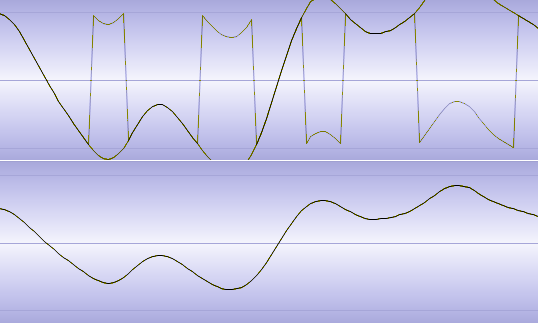Hear CEDAR Audio's patented Unwrap technology

7 December 2020
For many years, customers sent us similar sounding audio samples that couldn't be repaired using any existing technology. The problem was sample wrapping, an unusual form of clipping distortion where, instead of being flattened at the maximum and minimum amplitudes of the audio format used, samples appear with the right shape but at the wrong amplitude. Although relatively rare, this was being encountered on digital audio recordings made using devices ranging from small, handheld units such as interview recorders to the large, professional recorders used in the film and broadcast industries, and the consequence was a loud and aggressive form of distortion that could totally obliterate the wanted signal and render the audio completely useless.
Unable to resist the challenge, we developed a unique algorithm to identify and correct sample wrapping distortion, and today we're proud to announce that our second patent for this technology - first unveiled in our Unwrap module for CEDAR Cambridge - has been granted.
Unwrap is a remarkable process that can rescue unusable audio to make it clear and intelligible. Where other problems exist, these can then be addressed using additional CEDAR processes such as broadband noise reduction, crackle and hum removal, and so on. Sometimes when people first hear our audio unwrapping they believe that the results have been faked. We don't blame them. If you listen to these samples - which are genuine recordings sent to us by customers - you'll understand why.
It's the reason that reviewers say about CEDAR, "If you want the best, there's no other option"
TYPICAL WRAPPING |
|
|
ORIGINAL AUDIO:
|
PROCESSED AUDIO:
|
EXTREME WRAPPING |
|
|
ORIGINAL AUDIO:
|
PROCESSED AUDIO:
|
For further information:
If you would like to learn more about Unwrap or any other CEDAR Cambridge processes, please contact Clive Osborn (post), Alan French (forensics), or Gordon Reid (archives and libraries).
CEDAR Audio Limited, 20 Home End, Fulbourn, Cambridge, CB21 5BS, UK.
t: +44 1223 881771
e: press@cedaraudio.com